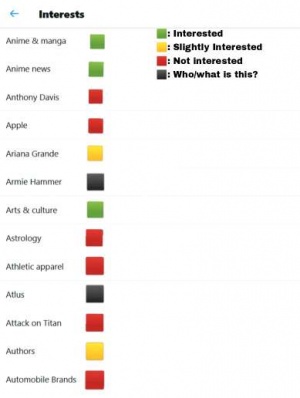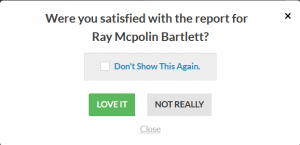Ray Bartlett
The extent to which my data is collected is in the back of my mind when I engage in any digital activity. However, it doesn’t inform my actions to a great extent. I have less of an online presence than most people I know, but if this class has taught me anything, it’s that a lot of data can be gathered with very little information. This research illustrated to me that I should put more thought into what I choose to post online. It’s been made clear that although I am not going to disconnect myself from the digital world completely, I should be more purposeful with what I contribute to my online identity in order to find a middle ground between sharing information about myself and still maintaining a level of privacy.
Contents
Surface Level Searching: Google
Using Google, the most basic and common method of searching for people (and just about everything), doesn’t yield much information about me. Unsurprisingly, “Ray Bartlett” is not a specific enough search query, but adding my hometown to the end easily makes every result about me. And just about every result is related to my high school cross country team. The only exceptions on the first page are LinkedIn and Facebook accounts, the former of which is far from complete and the latter of which was made solely to find a roommate my freshman year and hasn’t been touched since. Needless to say, neither is a great portrayal of me. Strangely, I’m much more active on Instagram and Twitter, and both use my real name. But these accounts are nowhere to be found on Google; I’d speculate that LinkedIn and Facebook are more commonly used, giving them precedent over the platforms I actually use.
As for the rest of the results, it would be a stretch to call this an “inaccurate” portrayal of myself; cross country represents a major component of my time in high school, and the team has won multiple state titles, making it unsurprising that there are plenty of results about it. But while nothing about this representation is outright false, it’s surely incomplete, and very dated. My personal identity has evolved a lot since high school, and these results don’t reflect that in the slightest.
This isn’t too surprising to me, and I can hardly blame Google. If I were active on Linkedin and/or Facebook, these results would be a better representation of me. The first thing people see when searching for me are two accounts that I directly control, giving me a relatively fair amount of influence over how I am portrayed. The only downside is that Linkedin is focused entirely on an individual’s career and Facebook accounts are only viewable by friends. So when it comes to Google, the accuracy of its portrayal is more or less up to me. If I used Facebook and/or LinkedIn, then Google would present a more accurate and up to date version of my identity, but as it stands, this falls very short.
Deeper Level Searching: Social Media
As I mentioned, I would not consider myself to be very active on social media. I’m much more of an onlooker than a contributor, spending the vast majority of my time on digital platforms interacting with others’ content. I have four posts on Instagram, and the only information they convey is that I have graduated high school, been to Chicago, and like to wear hoodies.
Still, even though a person viewing my Instagram or Twitter accounts might not discover much, Instagram and Twitter themselves could gather a lot of data about me based on the type of content I interact with. Although they’re uninterested in crafting a detailed profile of who I am, personal interests are a significant part of any individual’s identity.
The most striking difference between Instagram and Twitter’s compiled ad interests is the level of detail. Based on this admittedly very small sample size, Instagram prioritizes quantity and Twitter favors quality. Twitter’s compiled list of my interests has a finite amount of very specific topics including my favorite entertainment properties and artists, while Instagram’s Account Data menu has an ostensibly infinite list of interests that fluctuates wildly in accuracy. It’s also much less current, still containing interests from many years ago, such as skateboarding and Xbox 360.
If I were to cherry-pick the topics from Twitter and Instagram that I found to be the most representative of my interests, they would form a relatively accurate yet very shallow portrait of me. I’m passionate about music, and a few of my top artists are present on both lists, along with some of my favorite video games and anime. But even with these hyper-specific examples, they don’t convey the nuances of why I’m interested in these things or any of my hobbies; just a flat list of my favorite media. On top of this, seemingly less than half of the subjects listed are actually accurate. Twitter seems to think I’m a big fan of the NBA, which isn’t even remotely true, and Instagram has hair products and shopping malls at the top of my list, neither of which I’m at all interested in. This is likely the result of filling in the gaps with general topics that people in my demographic care about, but it’s unlikely that all or even most of them apply to everyone.
Without me curating them in any way, these sprawling lists of ad interests are rife with inaccuracies and far from an accurate representation of my identity.
Deepest Level Searching: Data Brokers
Google and social media platforms present opposite problems when it comes to conveying my digital identity: A basic Google searched uncovered a single aspect of who I was a few years ago, whereas social media data gave a broader overview that included an abundance of inaccuracies. I figured that a data brokerage service should, in theory, mitigate both issues by searching as many sources as possible and checking them for accuracy.
I used Instant Checkmate, a top result for data brokerage services. After a very long process, it compiled a profile of me, but it left a lot to be desired. It doesn’t even include my full legal name, and my middle name isn’t capitalized correctly. Literally the only things it reveals are my email address and the address of a home I haven’t lived in since 2006. For a paid service that touts itself as “the leading background search and people search tool on the internet,” there was shockingly little information. It was hardly enough to convince a searcher that I even exist, let alone provide them with a cohesive identity of me. This is likely because the bulk of the categories are properties/investments in my name and criminal records, the former of which I’m simply too young to have and the latter of which hopefully stays blank. Most of the other categories seemed to be derived from LinkedIn which, as I mentioned, I essentially don’t have.
My Digital Identity
After looking through my Instant Checkmate profile, the website asks if I’m “satisfied” with it. My initial response is no, of course I’m not. It doesn’t provide anything that contributes to discerning who I am or even where I live. But then I thought about it for a moment. This data, as well as everything from Google and social media, was not a satisfactory portrayal of my identity, and at times was completely inaccurate. But is this a bad thing? Do I really want my personal information to be online for anyone to access? Though I was initially surprised and even a little disheartened at seeing the lackluster state of my digital identity, I can’t help but wonder if it beats the alternative. I personally don’t like sharing much about my life, and my immediate reaction is that it’s for the better that my digital identity stays as nebulous as possible.
But it’s hard to know whether this is actually to my benefit. Should a potential employer in the future run a background check on me, I’m not sure what such minimal information will tell them. Beyond my professional life, social relationships are becoming increasingly digitized, especially during the pandemic. It’s hard to not fear losing touch with people just because I’m not super active online.
In the grand scheme of things, uncovering information about people online, especially to the extent you can today, is a recent phenomenon. Through this research, I’ve surmised that it’s crucial to strike a balance between online presence and privacy. It’s more or less a fact of modern life that you have to be engaged with the internet to some degree; but an equally important fact is that you’re essentially always being monitored in some way when you are. I for one am going to be much more deliberate with what I choose to share through social media; unless it in some way contributes to my professional or social life, it likely isn’t worth presenting to the world. I’ve concluded that it’s important for everyone to find this compromise for themselves. There’s no “correct” answer; some people will inevitably be more comfortable with sharing their information than others. But we should all put a lot of thought into where we want to place ourselves on the spectrum of privacy and disclosure.


